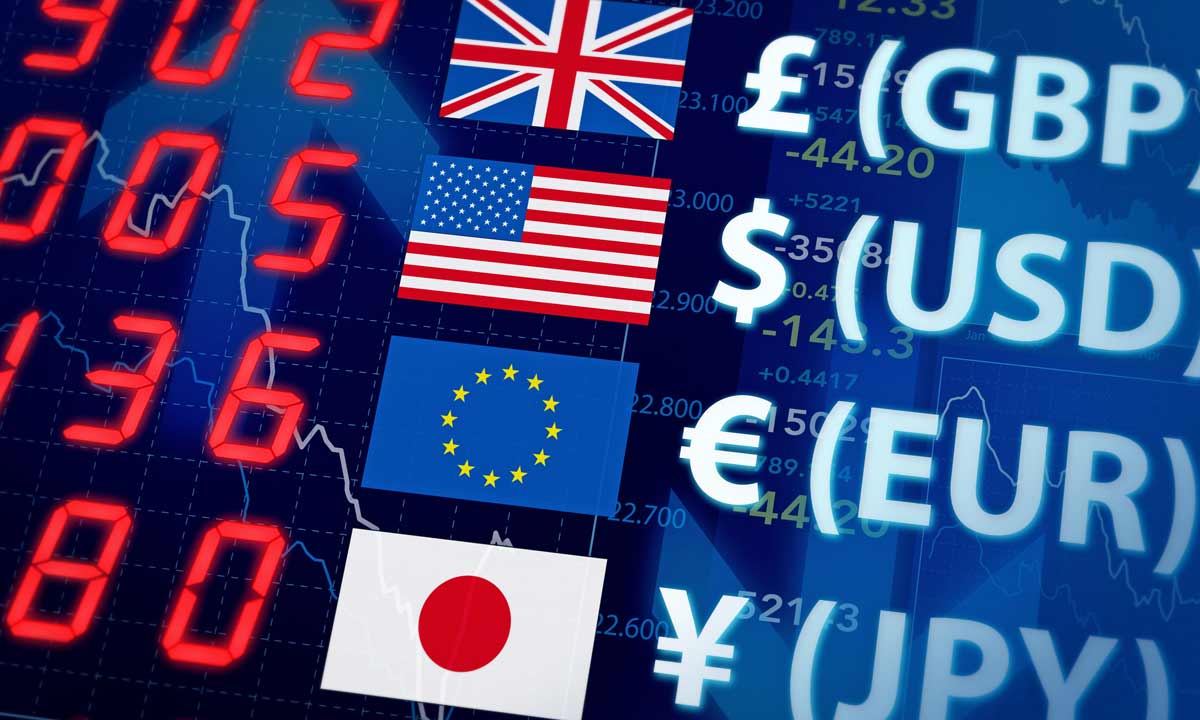There are many factors that can influence exchange rates across the globe, none of which you can control. And while no one can affect FX rates — or even accurately predict them — you can take steps to manage the risk to your portfolio or business.
In a recent discussion, Roderick Cheung, Director, Commercial FX Solutions at RBC, shared some insights and advice for buying, selling and conducting operations globally.
Four Steps to Manage and Reduce Your FX Risk
1. Understand what the risks are
Foreign exchange losses come straight out of profits, often without tax-deductibility and the possibility of recovery. Understanding your foreign exchange risk could therefore make the difference between a good business deal and a bad one.
Understanding the risks begins with identifying where your portfolio or business is exposed to foreign currency fluctuation. For example, if you buy or sell products outside your country, own a vacation home, purchase equipment abroad or have investments overseas, you may face foreign exchange exposure,
2. Focus on what you can control
No one can forecast exchange rates with absolute certainty. In fact, Alan Greenspan, former chairman of the U.S. Federal Reserve, remarked: “Forecasting exchange rates has a success rate no better than that of forecasting the outcome of a coin toss.” Cheung recommends focusing on obtaining certainty over trying to win in an exchange rate gamble, with the help of foreign exchange tools and services. “The markets do what they do,” he says. “Managing foreign exchange risk is not so much about making sure you’re not going to lose money but having the certainty of what dollar value will be paid out one, two or several months down the road.
3. Know where your business is going
Having a forward-looking plan that considers any international business is essential to your ability to manage FX risk. “You need a timeline,” advises Cheung. “It’s important to know not just what you’re doing outside your country today, and what your FX exposure is, but what business you expect to do in the future. Are you growing, entering new markets, changing markets? That longer-term view is just as important as what you’re doing today, in order to effectively manage risk.”
4. Choose the right FX partner
It’s a common rumor that the big banks are not the most competitive when it comes to FX. While conducting research is an important part of the process, it is essential to keep in mind the bigger end-to-end picture to ensure any research yields an “apples-to-apples” comparison.
“You also want to look at the holistic price of a transaction,” advises Cheung. “If you’re looking to conduct a foreign exchange transaction, you may not be looking to simply buy or trade foreign currency. More likely, you’re doing something else that requires foreign exchange, such as making or receiving a payment, putting money aside for a future payment, or transferring money between accounts. While someone may be offering a lower rate on one particular part of the transaction, what are the other costs involved?”
In choosing a financial partner for your international investments or business, you also want to consider how long it will take for money to get from one place to another and what the standard settlement times are. These details can significantly affect your cash flow and ability to manage your portfolio and run your business.
It’s also important to recognize that foreign exchange is just one element of a given transaction. “Foreign exchange is just like any other product or service associated with your business,” reminds Cheung. “It’s just one part of your greater wealth plan or business model. When choosing a foreign exchange partner, you, therefore, want to work with someone who can support your broader range of financial needs.”
There are a number of products and services that can help you manage and reduce foreign exchange risk as you do business internationally — many of which have been adapted to consider the volatility of today’s markets. A Private Banker or a Business Banking Specialist Financial Advisor can help you minimize your risks, understand your options and optimize your cash flow today and into the future.
Learn more about our foreign exchange solutions.
This article is intended as general information only and is not to be relied upon as constituting legal, financial or other professional advice. A professional advisor should be consulted regarding your specific situation. Information presented is believed to be factual and up-to-date but we do not guarantee its accuracy and it should not be regarded as a complete analysis of the subjects discussed. All expressions of opinion reflect the judgment of the authors as of the date of publication and are subject to change. No endorsement of any third parties or their advice, opinions, information, products or services is expressly given or implied by Royal Bank of Canada or any of its affiliates.



















